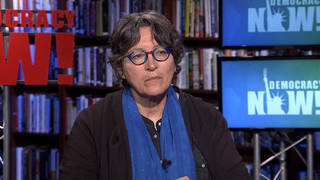The United States and India have reached a deal to allow U.S. companies to build a new generation of nuclear power plants in India without being held legally liable in the event of a nuclear power plant catastrophe. India is one of the few nations that does not exempt nuclear suppliers from accident liability. It put strict compensation laws on the books after the 1984 catastrophe in Bhopal when a factory owned by the U.S. multinational Union Carbide Corporation leaked cyanide gas into the air, killing thousands of Indians. President Obama announced the deal in India during a joint press conference with Indian Prime Minister Narendra Modi.
President Obama: “In the last few years, trade between our two countries has increased by some 60 percent, toward a record $100 billion. We want to trade even more. So we welcome the reforms that the prime minister is pursuing to make it easier to do business here in India. Today, we achieved a breakthrough understanding on two issues that were holding up our ability to advance our civil nuclear cooperation, and we’re committed to moving towards full implementation.”
U.S. firms, including General Electric and Westinghouse Electric, are expected to benefit from the nuclear deal. Meanwhile, Indian Prime Minister Narendra Modi discussed plans to expand military ties with the United States, including joint production of drone aircraft and equipment for Lockheed Martin Corporation’s C-130 military transport plane.
Indian Prime Minister Narendra Modi: “Today, we also decided to take up our growing defense cooperation to the new level. We have agreed in principle to pursue co-development and co-production of specific advanced defense projects. This will help upgrade our domestic defense industry and expand the manufacturing sector in India.”










